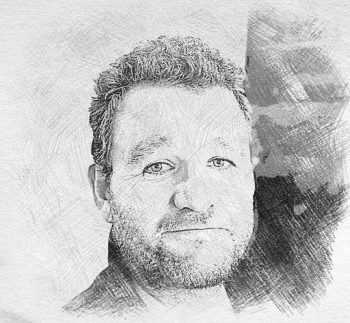
About S.C. Mae:
S.C. Mae writes action-packed, futuristic tales that cover all the science fiction bases, from space opera to sci-fi mysteries to near-future hard science fiction. He also loves reading, board games, animals, and food, but who doesn’t, right? He lives in Auckland, New Zealand. He has one cat. Just one. Any more would be chaos.
What inspires you to write?
Almost everything! I just love creating stories.
But if I'm specifically looking for inspiration, then I read. Not for ideas but because I find that reading is like high-octane creative fuel. There are some authors who particularly fill the tank but I'll talk about them elsewhere in the interview…
What authors do you read when you aren’t writing?
Louis L'Amour – usually less than five minutes into reading one of his books I'll be overcome with an urge to get writing!
The first scifi book I read was by Arthur C. Clarke. It blew my mind, and set me up for a lifelong love of science fiction.
I also really enjoy a lot of C.J. Cherryh’s work. Her worldbuilding and character creation is just amazing.
Timothy Zahn is another author that comes to mind. I love the way he constructs his stories.
Oh, and Carl Barks and Don Rosa, the greatest comic writers of all time!
Tell us about your writing process.
I outline novel length stories. Short stories are often felt out as I go but if I do that for longer stuff then I'll just keep writing myself into corners.
My outlines can range from anywhere between 8,000-20,000 words. They're basically me getting the overall story out into a text document as quickly as possible. Before I sit down to properly draft I'll print a hardcopy of the outline and as I write I'll cross out what I've covered. Of course, the story can change a whole lot by the end of the draft but I find having the outline gives me a path to return to if things get too out of control.
Before I start writing I also create summations/descriptions for the characters who'll appear the most. If it's a series, I'll still write a summation for the main character before each book to see how they've grown and what their goals currently are.
I also write 'universe notes' for planets, groups, significant places, etc.
For Fiction Writers: Do you listen (or talk to) to your characters?
I interview primary characters before starting the draft in order to get to know them better. That's always fun (and they generally turn out quite different to how I expected)!
What advice would you give other writers?
Read. Read lots. And not only fiction (history is a must), and definitely not only fiction in the genre you want to write. Reading is the best way to learn how to tell stories, in my opinion.
Then write. And write. And write some more. Writing is a skill, learned over time. The more you write the better you will get.
Critique the work of others. Personally, I’ve found this to be the best way to up-skill my writing. When looking at the writing of others I have objectivity I don’t have when examining my own work. In turn, I can then apply the advice I give to my own writing.
Finally, don’t give up. There are many writers out there with the potential to be great who gave up because things weren’t happening as fast as they wanted, or they didn’t like feedback they received, or they just got overwhelmed. If you need a break, take a break. But don’t give up. Don’t ever give up!
How did you decide how to publish your books?
My decision to self-publish was really based only on my enjoyment of writing.
In the past, I've found the querying and submission process to be anxiety-inducing, which in turn affected my enjoyment of crafting a story.
For me, the love of writing tops all other aspects but I still have a strong need to share my writing with others. So I decided to self-publish.
If I were to give any advise to new authors about publishing, it would be to research, research, research and find what works for you. Don't be swayed by arguments from each side that attack either trade publishing or self-publishing. There's pros and cons to both avenues but making a choice because of someone else's perceived grudge against one part of the industry is unlikely to work out well, in my opinion.
Too, there are plenty of writers now who have a hybrid approach to publishing, and thus are able to harness the pros of each side of the coin to their advantage.
What do you think about the future of book publishing?
Books will continue for as long as humans continue. The formats they're published in will continue to change, as will the way they're published, but books themselves aren't going anywhere anytime soon!
What genres do you write?: Science Fiction
What formats are your books in?: Both eBook and Print
Website(s)
S.C. Mae Home Page Link
Link To S.C. Mae Page On Amazon
Your Social Media Links
Goodreads
Twitter
All information in this post is presented “as is” supplied by the author. We don’t edit to allow you the reader to hear the author in their own voice.
